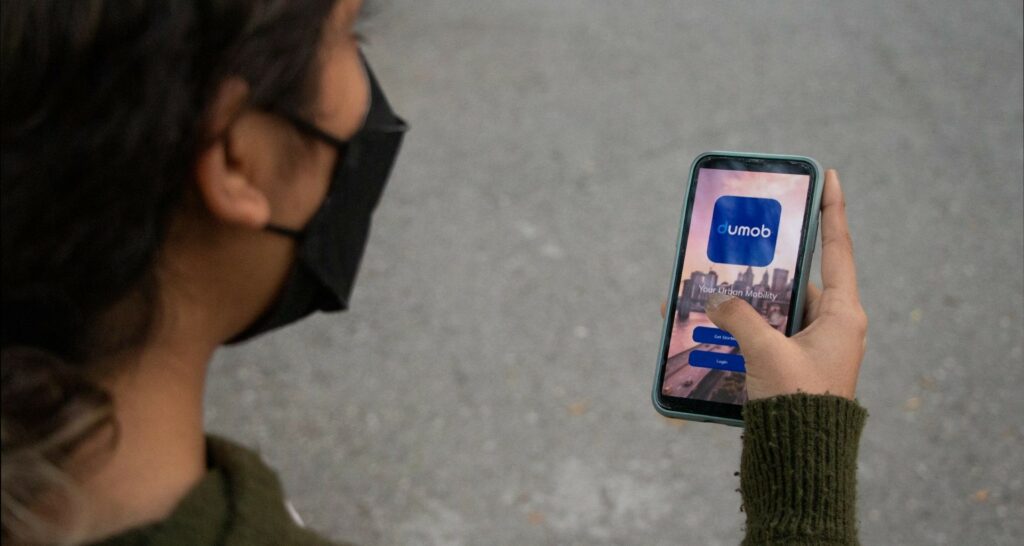
“Dumob”: The Mobility App Created by Mexican Students

While it is true that large global corporations are focusing their impressive technology on mobility solutions for the world’s cities, there are also entrepreneurs with interesting initiatives that aim to offer innovations to improve the way people move around.
One of these outstanding cases is located in Mexico, where two students from Tecnológico de Monterrey took advantage of their internships in Germany to develop a high-impact application (app), which has led them to win an international award.
Daniel Palacios Maycotte and Omar Ruíz Sarmiento are the masterminds behind “Dumob”, a tool they created during their stay at Esslingen University, together with their teammate Ahmed Zawad.
How does it Work?
The app focuses on urban mobility and aims to encourage people to use public transport. It differs, among other things, by having a live location of means of transport such as the subway or bus.
It is able to recommend a route and transport to reach a certain destination. In addition, by using this service, the user will be able to receive rewards such as discounts in affiliated businesses.
Although these benefits will be only for those with a subscription to the application, it will also have a free version, which will allow the use of the main functions that are mobility.
The main goal of the innovation is to make people use public transportation more frequently, specifically the most sustainable ones.
By using the app it will be possible to generate D-coins, virtual coins with which the user will have discounts in affiliated businesses and in the same transport. The user only has to choose the place where he/she will go and the tool will show the possible routes and means of transportation, as well as the amount of points that can be generated in each one.
International recognition
With the presentation of the mobility platform, the Mexican students were awarded the international innovation prize, granted by the European Institute of Innovation and Technology (EIT), as part of its Strategic Agenda 2021-2027. They competed against 50 teams from 8 different countries in the European Union and Canada.
“Our biggest differentiator is the points system; it not only tells you how to get to a place, but rewards you for using sustainable means of transportation,” explained Palacios.
For his part, Ruiz revealed that they surveyed more than 70 people, and the problems they saw were that public transportation cost too much and that there were not enough routes, so it took a long time for the truck to pass by again.
In addition to an economic incentive, the students won the right to participate in a development stage, in which they will receive mentoring from experts to develop the prototype.
They are currently working to find investors to help them establish the platform in the EU, specifically in Germany.





